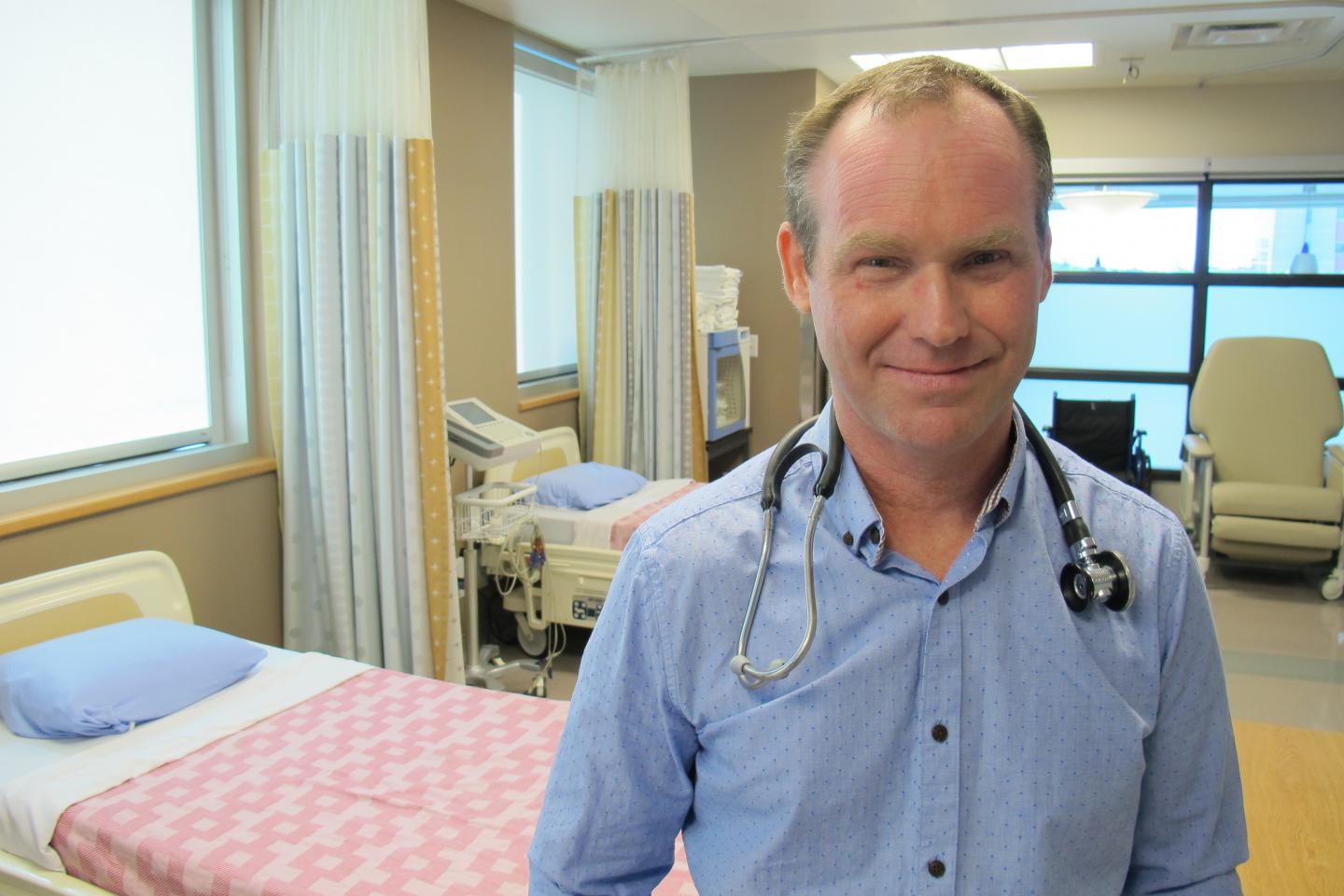
This is Dr. Mike Allan, professor of Family Medicine and director of Evidence Based Medicine at the University of Alberta’s Faculty of Medicine & Dentistry. Source: Ross Neitz
As Canadians prepare for long summer days in the sun, a new publication is shedding light on the suggested medical benefits of a nutrient that comes with the sun’s rays: vitamin D.
The vital nutrient is widely seen as an important element to good health. Many people place strong belief in its potential benefits in treating a number of medical conditions–such as depression or Multiple Sclerosis–and feel a need to supplement their vitamin D intake. But according to Michael Allan, a professor of Family Medicine and director of Evidence Based Medicine at the University of Alberta’s Faculty of Medicine & Dentistry, much of that belief isn’t validated by science.
“Wouldn’t it be great if there was a single thing that you or I could do to be healthy that was as simple as taking a vitamin, which seems benign, every day? There is an appeal to it. There is a simplicity to it. But for the average person, they don’t need it.” says Allan.
Allan is the lead author of a review published in the Journal of General Internal Medicine that examines the evidence for 10 common beliefs about vitamin D. The beliefs range from the ability of vitamin D to reduce falls and fractures, improve depression and mental well-being, prevent rheumatoid arthritis, treat Multiple Sclerosis, and lessen incidences of cancer and mortality. The review finds little evidence though that supplementation with this vitamin has much of an effect at all.
According to Allan, only a few of the 10 beliefs the team looked into seemed to exhibit some scientific proof. Strongest among them, vitamin D was shown to have a minor impact in reducing the number of falls among the elderly and reducing fractures.
“Even areas that we really thought there was good evidence for benefit early on, don’t seem to be bearing out,” says Allan. “The one that we probably have the most evidence for is fractures. If you were to take a group of people who were at higher risk of breaking a bone–so had about a 15 per cent chance of breaking a bone over the next 10 years–and treated all of them with a reasonable dose of vitamin D for a decade, you’d prevent a fracture in around one in 50 of them over that time.”
“Many people would say taking a drug for 10 years to stop one in every 50 fractures is probably not enough to be meaningful. And that’s the best vitamin D gets as far as we know now.”
Allan says other possible benefits of vitamin D covered in the review were not borne out or are still unproven. He is quick to point out that much of the existing research around vitamin D was poorly executed and consists of poor quality evidence. While he welcomes ongoing research in the area, he says moving forward it needs to consistently be of a higher caliber to be of clinical relevance.
“It makes it really difficult to determine a lot of time if there is anything substantial there that you could tell a patient, ‘You can take this and it can help you this much.’ There’s really not nearly enough there to say that.”
Despite the lack of evidence, belief in the benefits of vitamin D supplementation remains strong. Allan believes much of that stems from misplaced trust in previous research studies showing low vitamin D levels are associated with poor health outcomes, however they don’t prove causation. The bottom line, he says, is that while moderate vitamin D supplementation won’t cause harm to the average healthy person, it won’t heal either.
“The 40 year old person is highly unlikely to benefit from vitamin D,” says Allan. “And when I say highly unlikely, I mean it’s not measurable in present science.”
Filed Under: Drug Discovery




